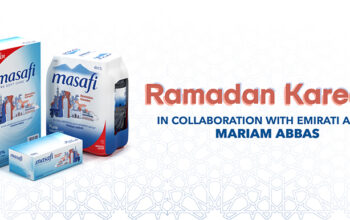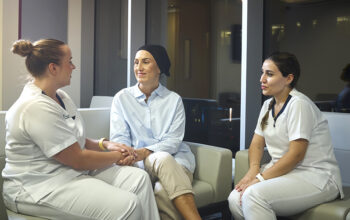1.MENA region’s healthcare market is projected to grow at 11.7% from US$185.5 billion in 2019 to US$243.6 billion in 2023;
2. Healthcare projects under execution in the Middle East and Africa region are valued at $45 billion, followed by pre-planning and planning schemes worth $23.8 billion;
3. Current healthcare expenditure in the GCC is projected to reach US$104.6 billion in 2022. Government spending on health care in the GCC estimated at $30.5 billion in 2021, from just US$2.4 billion in 2016, growing at 6% CAGR.
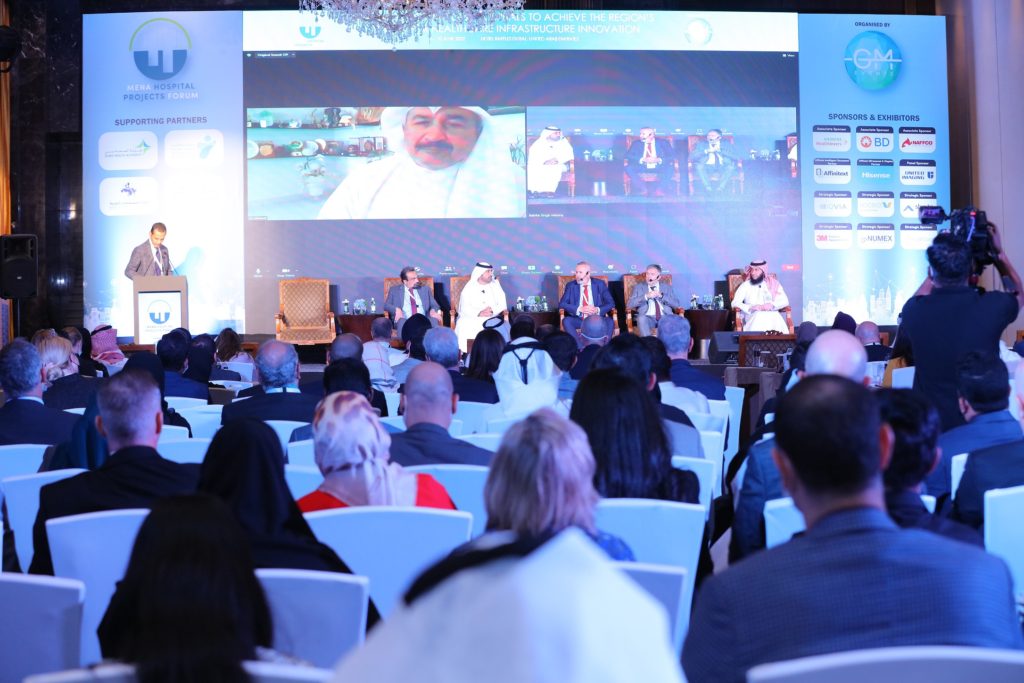
Business News, Dubai, June, 2022 : Healthcare market opportunities, especially the new hospital projects in the Middle East and Africa region – worth US68.8 billion – come under sharp focus at the two-day MENA Hospital Projects Forum 2022 (June 9, 10, 2022) in Dubai, UAE.
More than 250 delegates including senior government officials, project owners, developers, healthcare industry experts and key stakeholders will examine and discuss these opportunities including US$23.8 billion worth of new hospital projects that are in the pipeline, at the MENA Hospital Projects Forum that concludes tomorrow, June 10, 2022, to focus on the growing opportunities in the US$243.6 billion healthcare sector that needs additional hospital beds, doctors, nurses, paramedics, pharmacists, in the Middle East and North Africa (MENA) region.
With a young and vibrant population that is growing at a fast pace, the MENA region will need a large number of hospital beds, clinics, pharmacies, operation theatres, medical laboratories, physiotherapy centres and associated facilities in the coming decades.
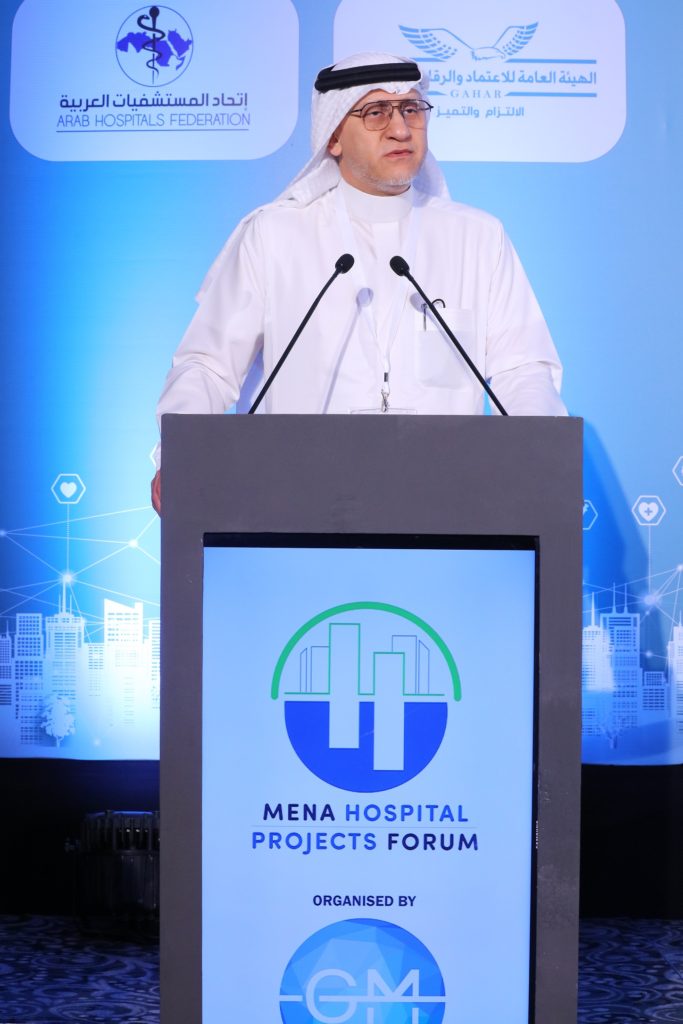
The high-profile two-day international conference takes place at a time when the healthcare sector in the Middle East and North Africa (MENA) region is witnessing a phase of significant growth due to increased demand for healthcare services. A recent report by Fitch Solutions suggests that the MENA region’s healthcare market is projected to grow at a compound annual growth rate (CAGR) of 11.7 percent from US$185.5 billion in 2019 to US$243.6 billion in 2023.
Dr. Younis Kazem, CEO of Dubai Healthcare Corporation, said, his organisation has published a roadmap for public-private partnership (PPP) in new hospital projects for future needs in Dubai. “We are talking to a number of investors in the healthcare sector where the demand is growing, especially in rehabilitation clinics, mental healthcare facilities and dialysis centres. We have a number of PPP models through which investors can develop healthcare facilities – be it a hospital, clinic or other health-related facilities.”
Leila Masinaei, Managing Partner, Great Minds Event Management – organiser of the MENA Hospital Project Forum, says, “As the economic growth accelerates due to an increase in the young and working population, the healthcare market is also witnessing strong growth that necessitates the development of new hospitals, clinics, laboratories, health resorts, health research centres, medical colleges and medical cities.
“With mandatory healthcare coverage and health insurance scheme, all the countries of the MENA region will have to build more hospitals and clinics, resulting in an increase in hospital projects in the region.
“So, opportunities are abundant for architectural consulting firms and suppliers who specialize in healthcare projects, especially hospitals and clinics. The good thing is that the opportunities are growing at a faster pace than other economic sectors.”
The UAE government has been the primary investor in the country’s healthcare sector: in 2019, it funded approximately 69 per cent of the country’s total healthcare expenditure of $16 billion (Dh58.7 billion), according to reports. However, the private sector has been increasing their investment in the UAE’s healthcare over the last decade.
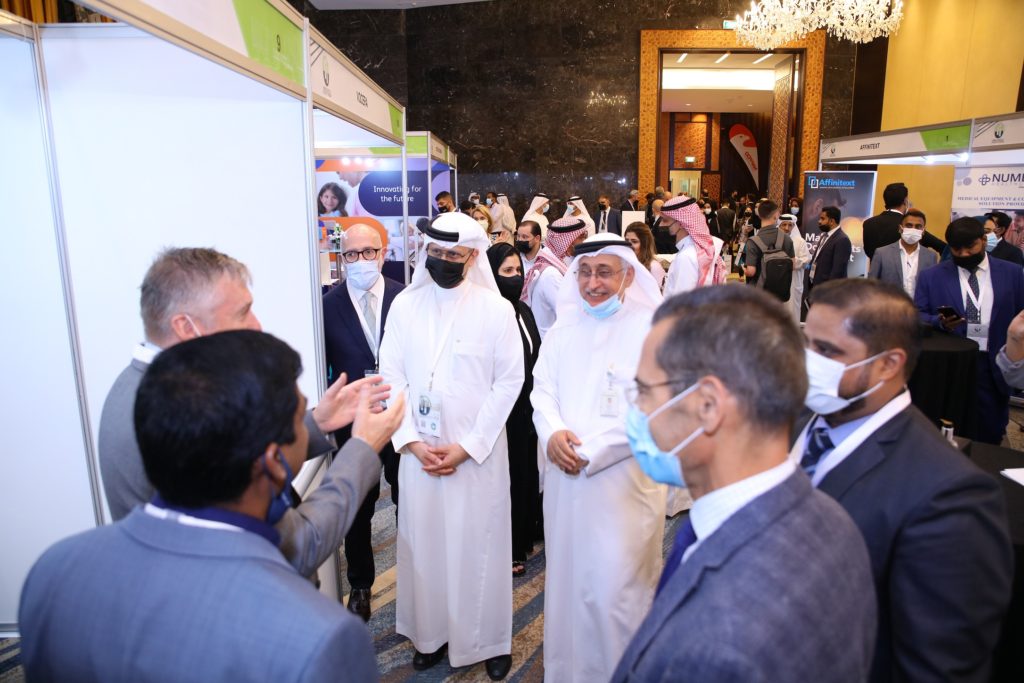
Healthcare spending in the UAE will reach up to $26 billion by the year 2028, according to a joint presentation by UAE Ministry of Economy and UAE International Investors’ Council, which also say that the UAE has 700 healthcare projects under development with total investment of US$60.9 billion (Dh223.5 billion), mostly carried out by the private sector.
Dr. Essam Howayyer, Director of Hospital Department, Emirates Health Services, UAE, said, the UAE has a vision to offer universal healthcare coverage (UHC) to all UAE nationals and expatriate residents.
“The UAE has a healthcare strategy that aims to provide healthcare services to all UAE nationals and expatriate residents and we are also looking at providing healthcare support to visiting tourists. We are doing a lot of transitional projects to make healthcare more accessible to all by inducting new technology, telemedicine to reach out to everyone living in communities.”
He said, the role of the private sector is very crucial and it is growing. “We have laid out the government’s healthcare vision for the next 20-30 years to the private sector so that they can plan their investment in the areas where private investment is needed. The private sector has a great role to play in our healthcare sector in future.”
Most GCC residents used to seek treatment in India, Singapore and Thailand. Now, in recent years, the medical sector has developed vastly in the UAE and other Gulf countries as well. UAE’s global appeal to medical tourists continues to rise and its contribution to the economic growth of the country is significant. The UAE launched medical tourism portals which made the lives of medical tourists much easier with the services such as direct contact with healthcare providers, visa issuance, booking appointments, hotels, transportation etc. The country currently spends around 4 percent of its GDP on health, and total healthcare spend for the Gulf region is expected to reach $89 billion in 2022, up 50 percent from 2013, according to a recent KPMG report.
According to Alpen Capital, Dubai alone will require an additional 8,300 physicians and 8,800 nurses by 2025. In line with these developments, the MENA Hospital Projects Forum 2022 features key healthcare projects in the region highlighting the opportunities.
Commenting on the growing demand for specialty care, Dr. Naser Ammash, Chief Executive Officer of Sheikh Shakhbout Medical City said: “SSMC in partnership with Mayo Clinic is building the foundation and adding building blocks to become the preferred integrated health care destination for the care of patients with complex, serious or rare diseases. By recognizing the growing needs for trusted care for these patients, SSMC is working to bridge the gap for patients’ needs through an integrated multi-specialty care team model that brings Mayo clinic expertise closer to where patients live.”
Dr. Ammash added: “As we build a new understanding of excellence in complex care for the region, SSMC, with the support of its shareholders, will continue to develop its medical and surgical services, elevate its standards of patient experience and quality of care with special emphasis on the power of care and healing through a holistic approach to health care delivery.”
More than 40 speakers, representing 15+ sponsors and exhibitors from 10 countries are discussing new hospital projects and how this would benefit the healthcare service providers and suppliers. The two-day conference is being complimented with an exhibition, business-to-business meetings, VIP Majlis, media conclave, a media zone to conduct exclusive interviews, issue news announcements and live broadcast opportunities through social media outlets for event sponsors and participants at the conference.
MENA Hospital Projects Forum 2022 sheds light on new technology in healthcare, project intelligence, business opportunities for healthcare operators, as well as changes in the region’s healthcare landscape. Some of the key themes that are being discussed, include – MENA region healthcare infrastructure development vision and plans; hospital new project showcases and ongoing project updates; hospital expansion, refurbishment, and digitation projects and overview of the latest and advanced hospital technologies, equipment and furniture, etc.
Upcoming Hospital Projects in the MENA Region
| Hospital Project Name | Capacity | Country | Project Owner |
| Hamdan Bin Rashid Cancer Hospital, Dubai | 250 beds | UAE | Al Jalila Foundation |
| Khasab Hospital Project | 150 beds | Oman | Ministry of Health |
| Al Suwaiq Hospital Project | 260 beds | Oman | Ministry of Health |
| The new Sultan Qaboos – Salalah | 700 beds | Oman | Ministry of Health |
| King Khalid Medical City | 1500 beds | KSA | Ministry of Health |
| King Faisal Medical City (KFMC) | 1024 beds | KSA | Ministry of Health |
| King Fahad Medical City | 1024 beds | KSA | Ministry of Health |
| Prince Mohammad bin Abdul Aziz Medical City | 442 beds | KSA | Ministry of Health |
| New Maternity Hospital | 789 beds | Kuwait | Ministry of Public Works |
| Kuwait Children’s Hospital | 792 beds | Kuwait | Ministry of Health |
| Sabah Al Salem Univ. Health Sciences Center | 690 beds | Kuwait | SAS University City |
| Kuwait University Teaching hospital | 200 beds | Jordan | Aqaba |
| Ibn Sina Hospital | 844 beds | Morocco | Ibn Sina Company |
| Medical City – Badr City | 350 beds | Egypt | EHCS |
| International Medical Centre and Hospital | 12,000 sqm | Egypt | OWagic Development |



